Craft a unique message tailored for your loved one
Write your own message below and choose when you'd like us to send it to your special one


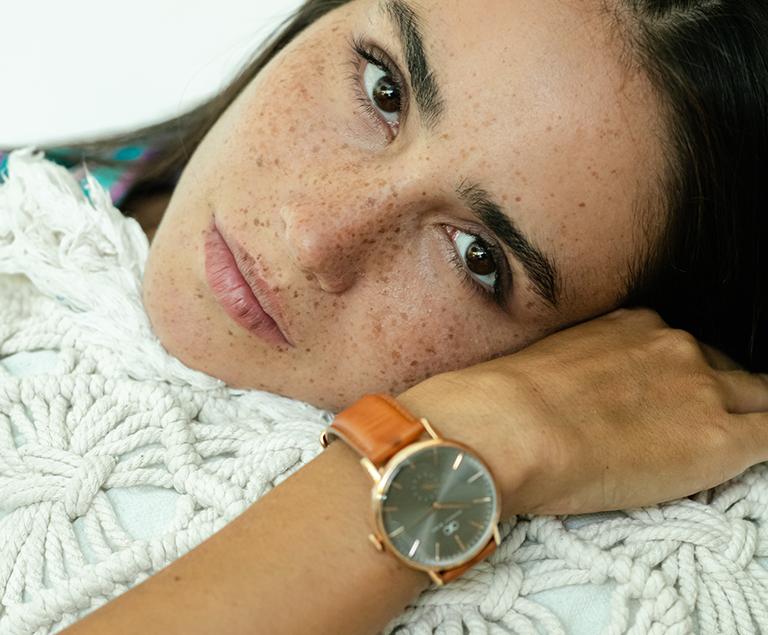
Loads of people find themselves sleeping with their phones, myself included. It could be a major case of FOMO, mindless scrolling on social media, or that latest Netflix series.
Spent the night tossing and turning? Had your phone fall right on your face? Your phone might be the reason for this. I'm sure you've heard this well-intended advice that the key to a good night's sleep is to avoid using your phone before you sleep. Have you ever wondered about the science behind that ever resounding statement?
True enough, there is a correlation between using your phone in bed and the amount of sleep you actually get.
Using our handphones late at night has made us an unknowing accomplice to the very thing that has been robbing us of our well-deserved rest. Blue light exposure, emitted by the digital devices we hold on to dearly.
Blue light itself is not inherently dangerous; it plays an essential role in boosting our attention, reaction times and even mood as we naturally get it from the sun. However, being exposed to blue light at the wrong time has a negative effect, it suppresses the melatonin hormones that help us sleep, leaving us more awake than ever.
If we insist on bringing our devices to the bedroom, prolonged exposure to blue light might result in impaired memories, lowered attention span and performance, which will affect us both physiologically and psychologically.
Having a sufficient amount of sleep allows our brain and body to recover. So when you're about to turn in, it is time to put your phone away! To help you get a good night rest, here are some practical ways to stop sleeping with your phone:
Work and leisure simply never ends. You can find a healthy balance and boundaries between the two; it's how you spend your time without compromising your rest. Practical action plans can be helpful in this process, for example, designate a "home" spot for your phone, give yourself ample time to "rest", and engage in alternative activities like reading and exercising.
While none of us may have an old school alarm clock due to the convenience of technology, that doesn't mean we shouldn't have one. Having one nearby would significantly reduce our blue light exposure while leaving us with no room to wiggle our way through the excuse of using our phones as "the only alarm". Plus, you can't snooze your way out of this real alarm clock when it rings!
If you really, really, really have to use your phone, we understand, so here are some other short term solutions you can consider:
As the name implies, it serves as a blue light blocker. Studies have shown that these glasses help to improve the melatonin hormone to sleep with ease even as one continues on their night digital routine. You too can wear one as you go about your day.
"Avoid looking at bright screens within two to three hours before sleeping.", that's the usual advice doctors would give. As an alternative, you can turn the night mode function on to cut down on blue light exposure.
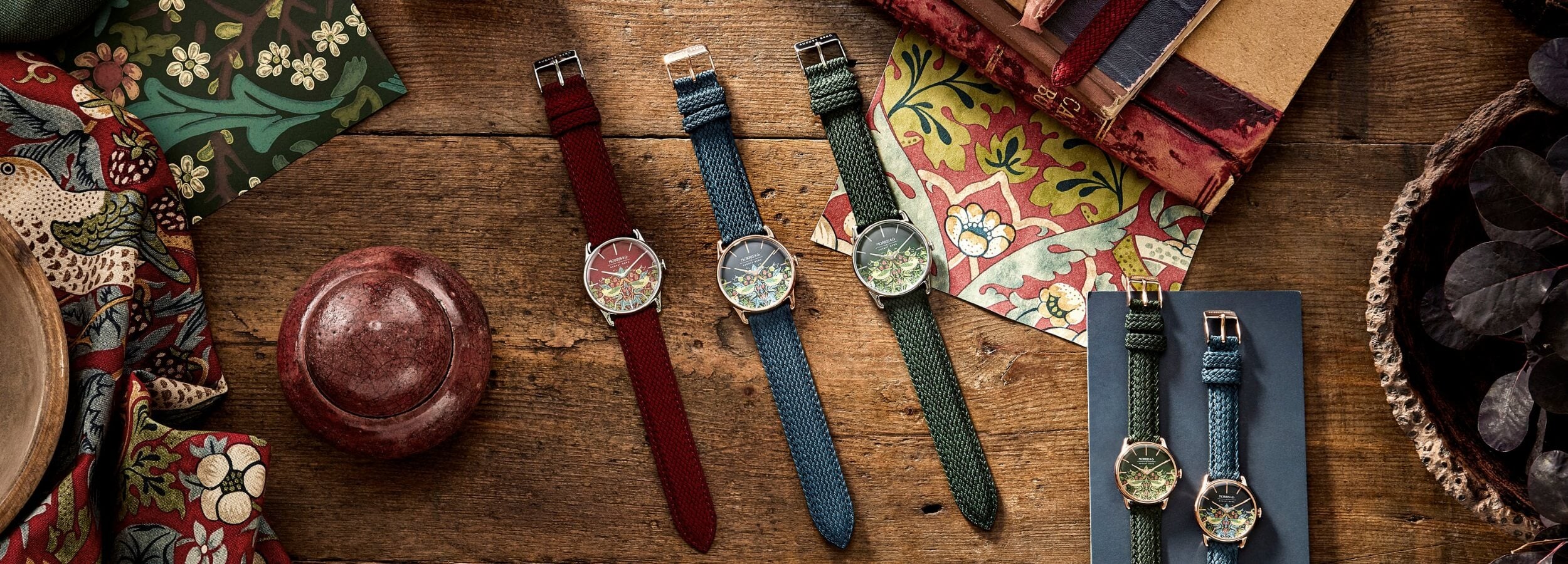
Designed in exclusive collaboration with the iconic British heritage brand - Morris & Co.. The chemistry between Minimalism & Maximalism!
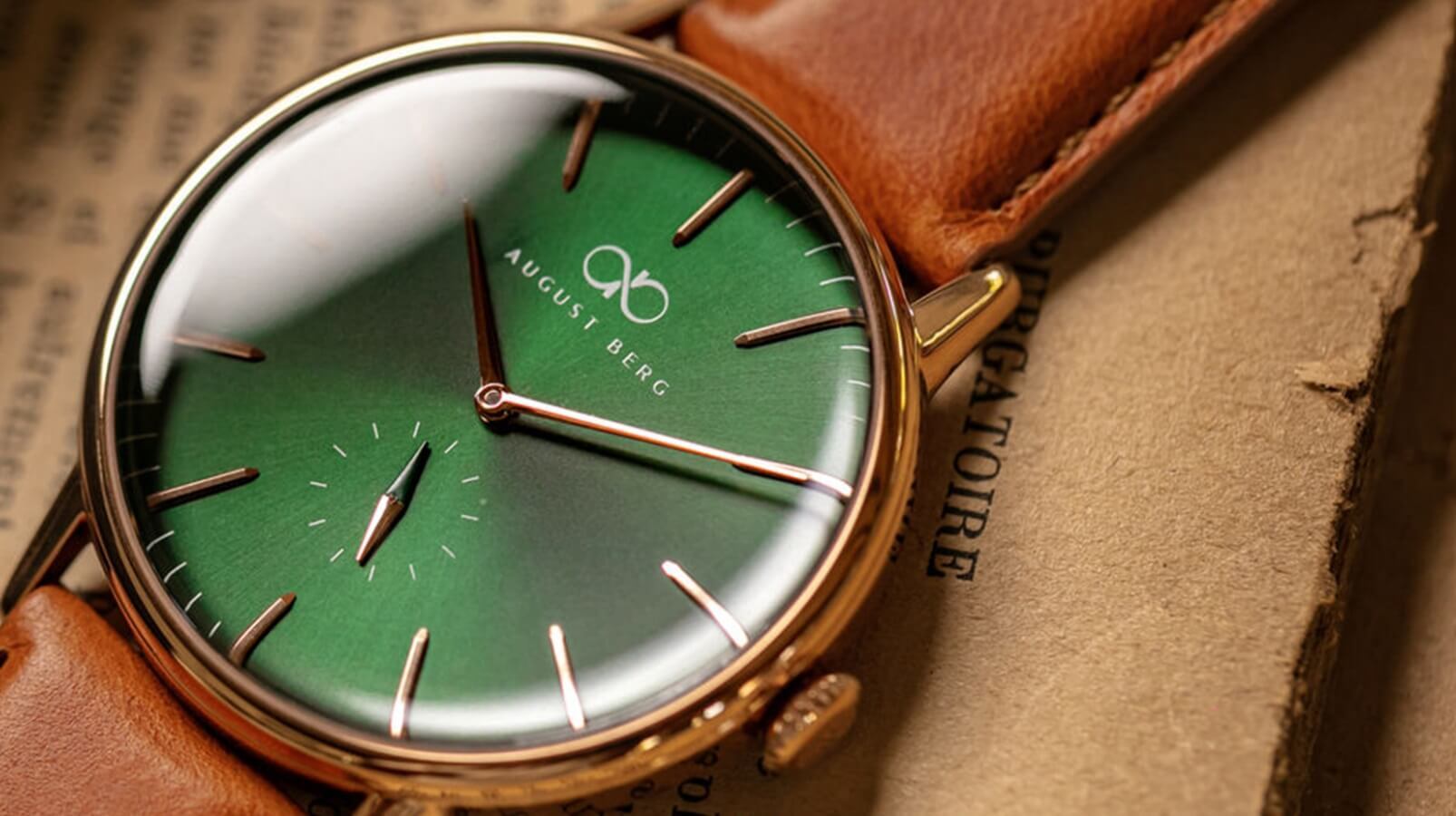
Designed by Magnus Joergensen with Minimalism philosophy of both Modern & Vintage, making it last in time.
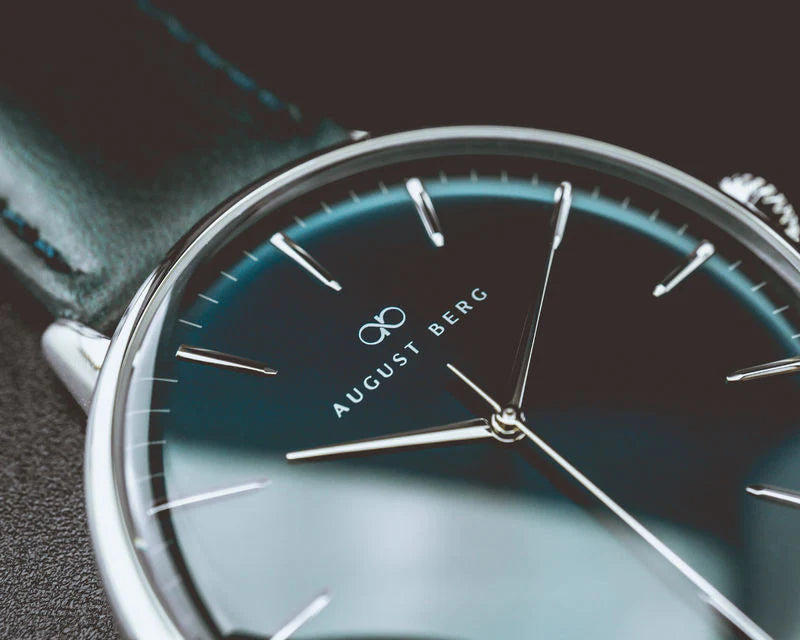
Equipped with anti-reflective & scratch-resistant glass, made of specialized single-dome sapphire crystals - Serenity collection
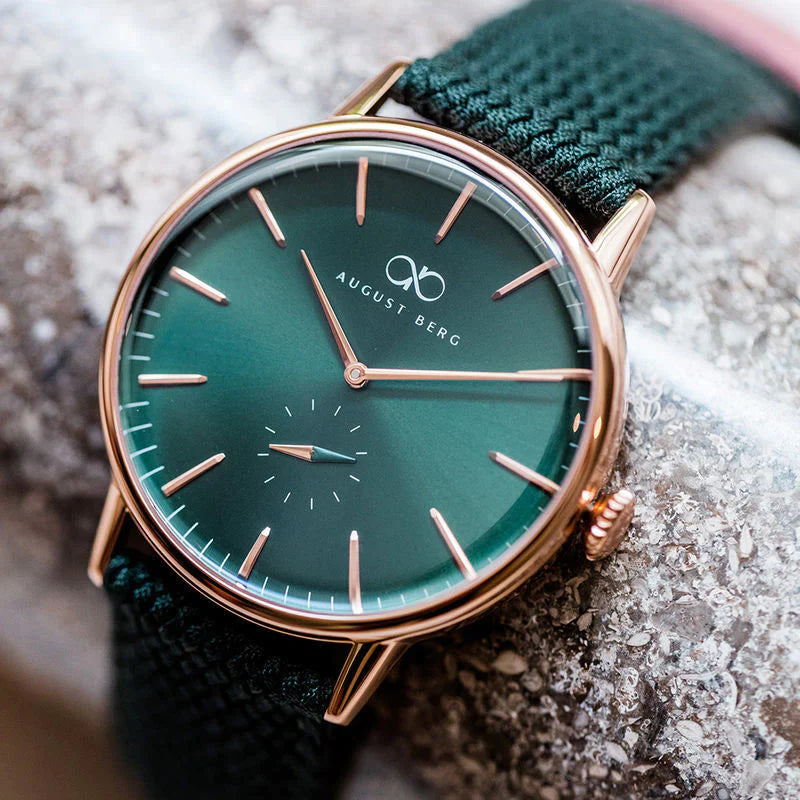
Crafted with meticulously chosen Japanese Miyota Quartz movement, ensuring precision & the utmost accuracy in timekeeping.
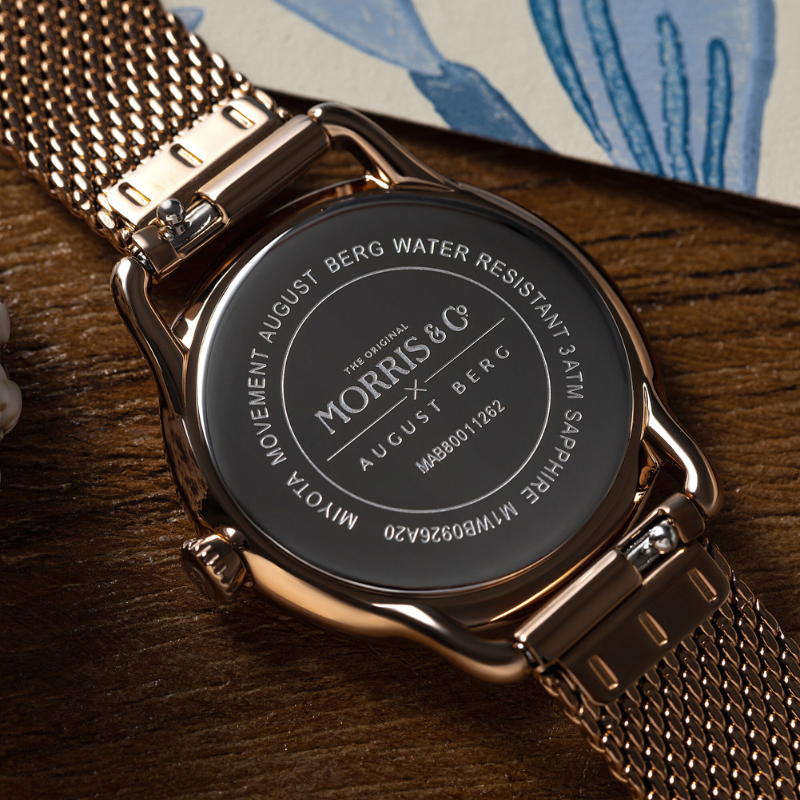
Can be engraved with your own message, making it a perfect meaningful gift for your loved ones.

With every watch sold, we help gift a child with 6 month of quality education in Asia & Africa. And, with every 20,000 watches sold, we will build a school with Human Practice Foundation. But why education?
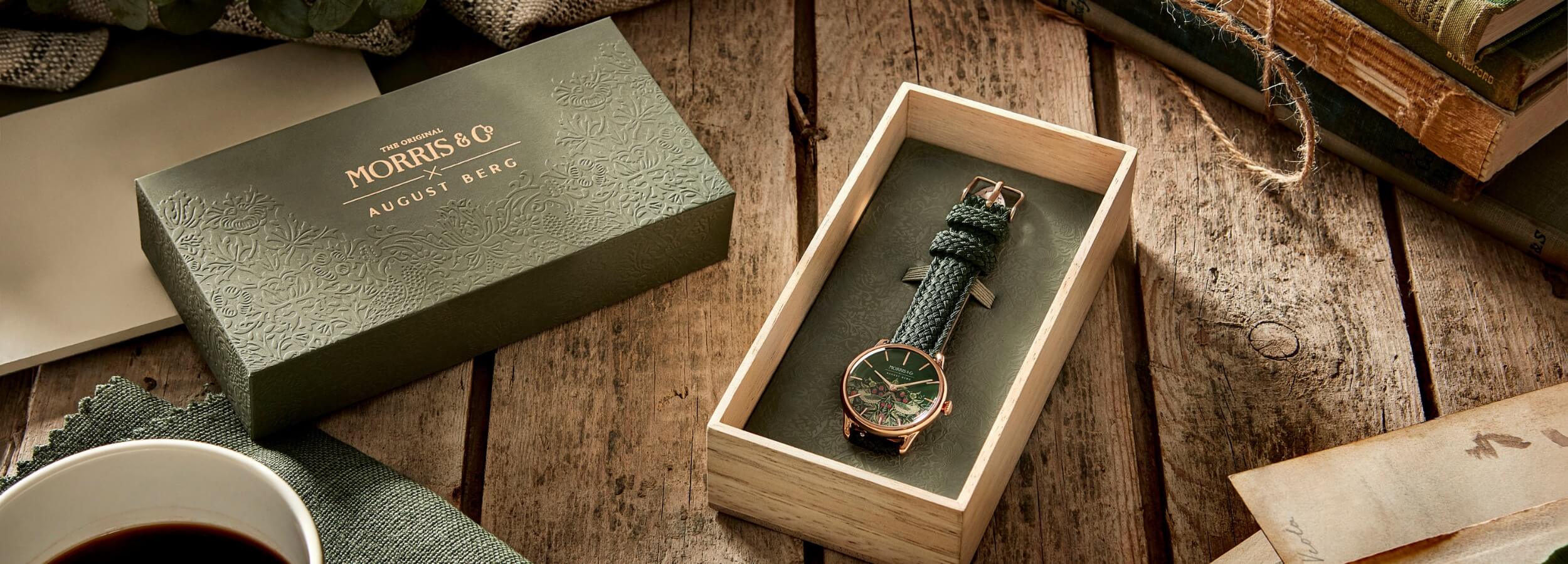
Delivered in sustainable & reusable Bamboo Boxes, certified by Forest Stewardship Council®

August Berg supports Carbon Removal for every shipment, ensuring that your delivery is carbon-neutral, and certified by Carbon Direct.